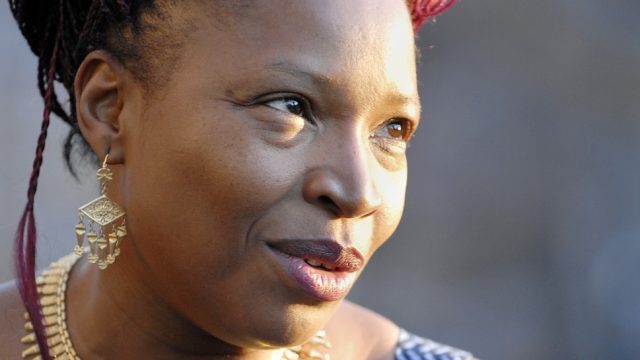For many Americans, African film is our great blind spot. That and South American. (A Google search for “South American film” returns Green Book as an option, which . . . no.) Obviously we know a lot of North American film. European? Yup. Asian? But of course. We even know at very least a lot of directors from Australia and New Zealand, even if their more prominent films may come after they’ve started working in Hollywood. South America and Africa, though, are not as well known to North American audiences, and there’s a depressing tendency to lump South America and Mexico together despite a rich tradition of South American film that could be talked about separately.
As for Africa, there are plenty of people working in film there. Burkina Faso even has a film school, turning out some of the most noteworthy film on the continent. Fanta Régina Nacro is one of its graduates, the first Burkinabé woman to direct a feature film. As a child, she told stories by the fire. At first, she wanted to be a midwife, but in order to be a midwife, she would have had to drop out of school. She thought about being a sociologist, but she heard about the film school and decided that she wanted to tell stories for a living—which, to her, meant to be a director.
Many of the stories she chooses to tell are drawn from her own life. She created a character based on her own mother, because her mother is her example of a strong female figure. She makes films about people with AIDS because she knows people with AIDS. She deals with social issues, such as difficulties between couples and the need for solidarity. Her full-length film, The Night of Truth, is about reconciling different ethnic groups in a fictional African nation.
Her stories are African inasmuch as she is an African woman with an African perspective. However, The Night of Truth was in part inspired by the dissolution of Yugoslavia and the testimony of Yugoslavian women about what happened to them in the ethnic struggles there. She’s very firm that its horrors are not exclusively African, though one death in the movie is based on how an uncle of hers was killed in the ‘80s. She felt that the atrocities in Yugoslavia were all the evidence one needs that barbarism is depressingly universal; you can be sitting and joking with someone one day, and the next, because of something neither of you control, you are bitter enemies.
She hasn’t done anything that’s made it to her IMDb page in a while, and I’m not finding anything English-language to explain why. I don’t know what she’s doing these days. She said at one point that she’d love to see more collaborations between African filmmakers and black American filmmakers, but she’s quite sure funding would be a problem. Perhaps that’s the issue with her; funding is a great and constant struggle. She’s got a vision, but it’s possible she may not have the opportunity to share it.
Help keep my vision going by supporting my Patreon or Ko-fi!

